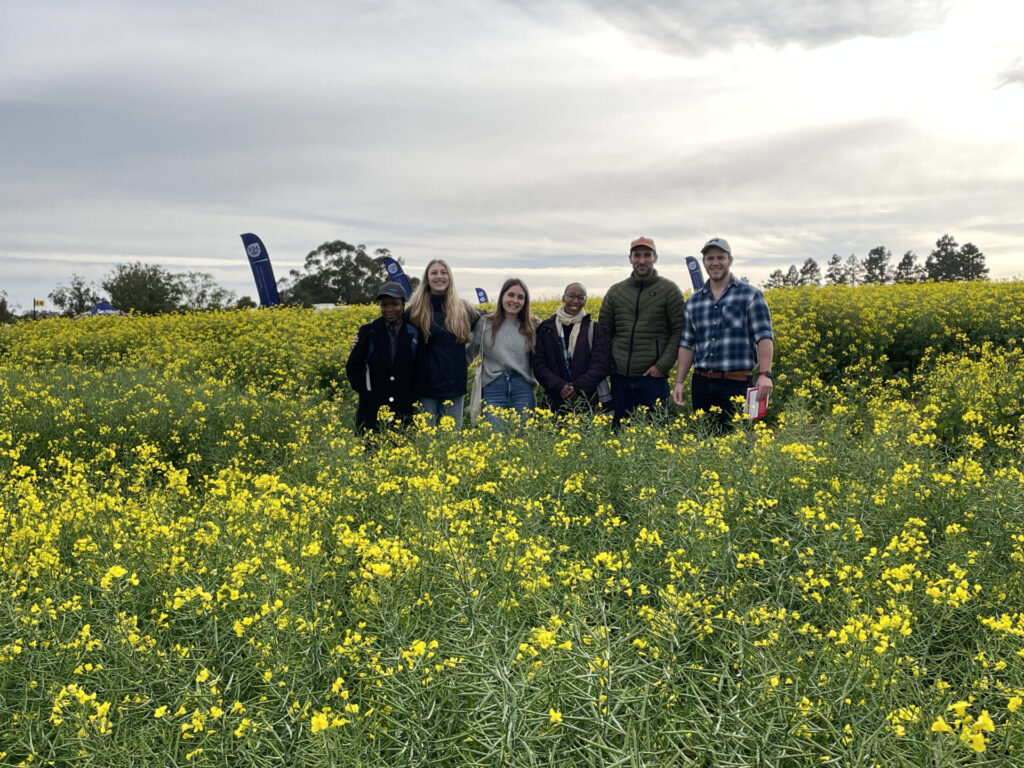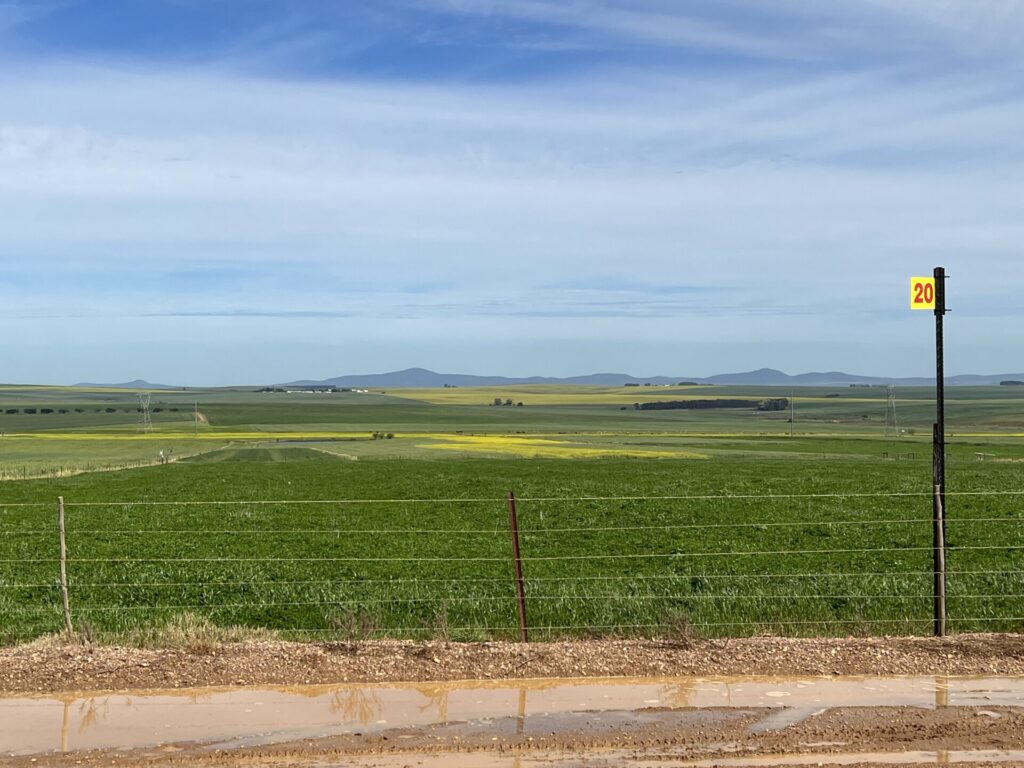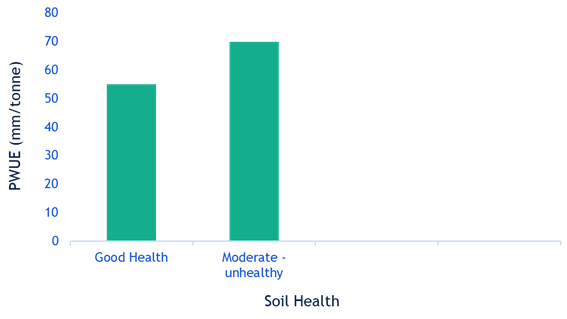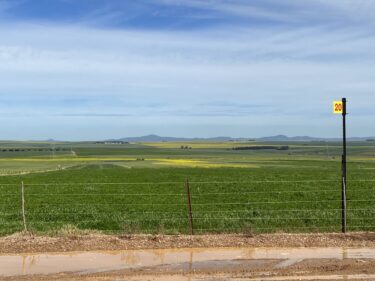05 September 2023
By Siviwe Malongweni, Research Coordinator: Agriculture & Soil Carbon
On August 24, 2023, the AgriCarbon team had the privilege of attending The Swartland Kleingraan Ontwikkelings Groep (SKOG) Farmer’s Day event in Malmesbury. Among the presenters were Dr Johann Strauss and Mr Rens Smit, who unveiled the remarkable results of the Departement Landbou Wes-Kaap (DLWK) Conservation Agriculture trial’s grazing management – a study that has been making waves in the regenerative farming community (Figure 1).


Figure 1. Top: The AgriCarbon team that attended the Farmer’s Day event. Bottom: The grazing management plot of the Departement Landbou Wes-Kaap (DLWK) Conservation Agriculture trial.
In their presentation the two researchers advanced compelling arguments in support of integrating livestock into cropping systems, a practice known to enhance soil health and biodiversity. This experiment, initiated in 1996, has highlighted the potential to harmonise agricultural practices with environmental stewardship. A key outcome was that the carbon levels in the DLWK experiment’s soil experienced a remarkable transformation over the course of the experiment. By following the three principles of Conservation Agriculture (minimum soil disturbance, maximising soil cover, as well as crop diversity -including livestock and legumes), the soil’s carbon (SOC) content surged from around 0.5% to an impressive 1.5% over the trial years. This advancement is particularly noteworthy given the shallow and rocky nature of the region’s soil, exemplifying the regenerative potential even in challenging environments. The benefits of this approach continue beyond soil enrichment. Dr Strauss highlighted that the integration of livestock brought about an additional environmental boon: a reduction in the usage of synthetic nitrogen fertilisers. This shift contributes to soil health and aligns with sustainable practices by curtailing greenhouse gas emissions. Fewer ammonia and nitrogen oxides released into the atmosphere mean a lighter carbon footprint – a significant stride toward mitigating climate change. Previous studies by AgriCarbon partner Trace & Save into the impacts of increased SOC on levels on pasture water use efficiency, show that farmers with SOC levels of 2,3% and above are more than 20% more water efficient than farmers with SOC levels of 1,7% and below. (see table below)

A visual testament to the transformative power of this method was seen in the rejuvenation of a previously dry farm dam. Filling to the brim for the first time since 2007 (due to the high volume of rainfall in June), the water in the dam came from the subsoil and not from runoff, so the water is clear with no sediment. Dr Strauss attributes this to the holistic approach of integrating livestock, highlighting how it mitigates resource depletion and environmental stressors while harmonising with the hydrosphere. The significance of these findings extends beyond the experiment itself. Mr Smit emphasised that integrated systems offer diverse landscapes that support biodiversity and foster adaptability in the face of socioeconomic and climatic fluctuations.
Dr Strauss’s positions on these practices are not isolated; they are echoed in an ever-growing body of published literature which supports the transition to regenerative farming systems. Integrating livestock into cropping systems isn’t just a method; it’s a path towards a sustainable and harmonious relationship between agriculture and the environment. In closing, the DLWK grazing management presented by Johann and Rens, presents a transformational approach to agriculture that replenishes the soil, revitalises waterways, and drives sustainability in a key sector of the economy. As we reflect on the insights from the day, it is clear that those striving for enriched soil health, elevated yields, and biodiversity should consider embracing livestock integration into their cropping systems. In doing so, we nurture the land and forge a resilient path forward for farming.
